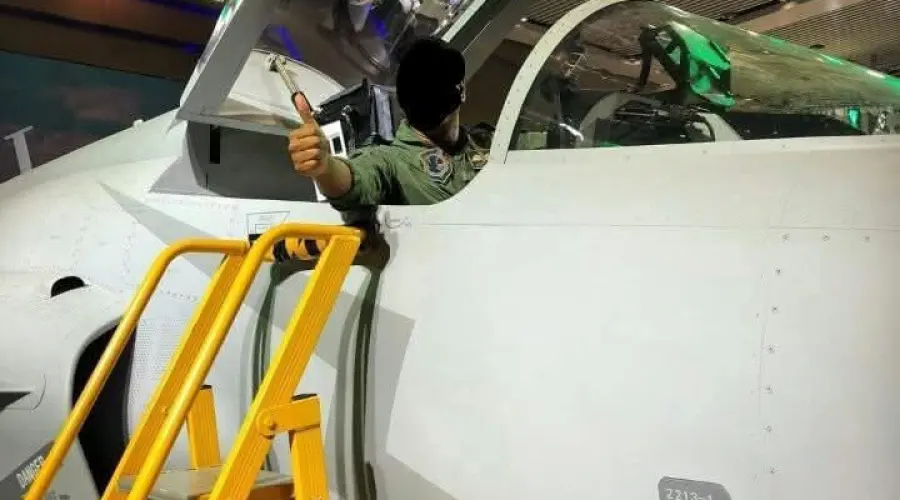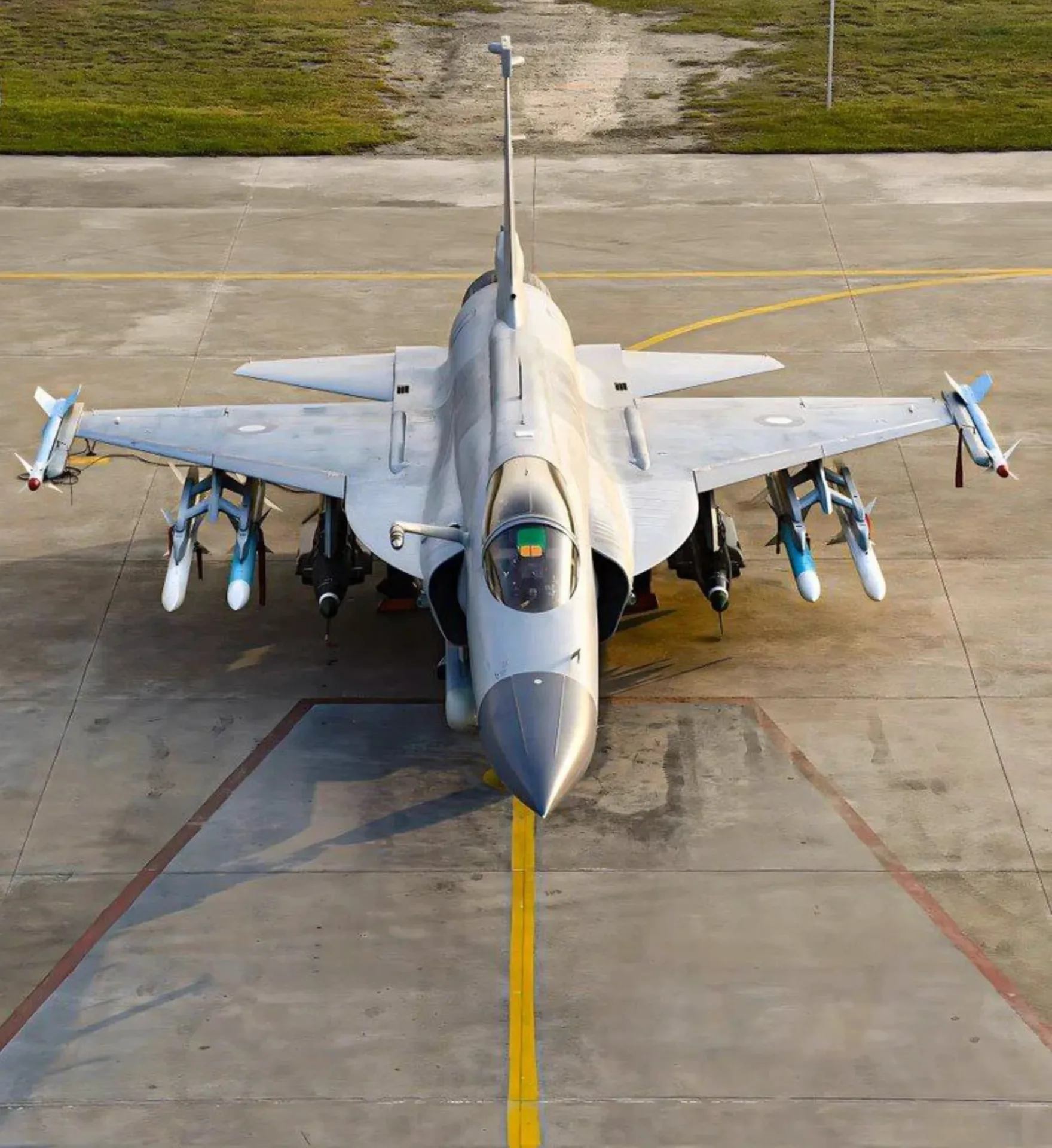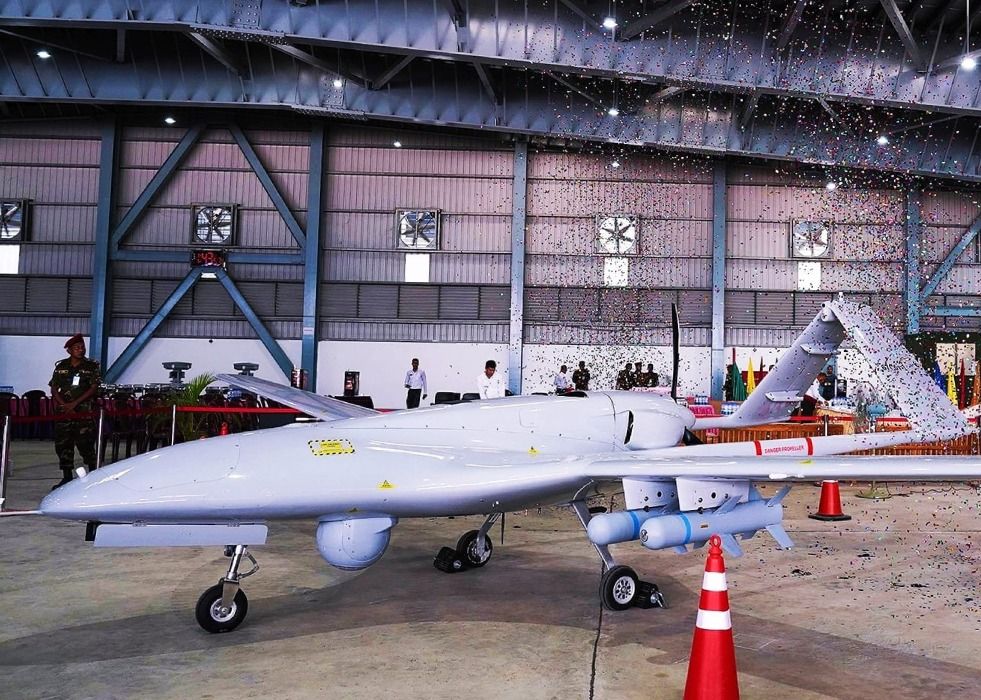Bangladesh’s Interest in Sino-Pakistan JF-17 Fighters Draws India’s Ire Amid Strained Relations
According to media reports, the Indian government is keen to prevent Bangladesh from acquiring the JF-17s, citing concerns about the aircraft being produced by two nations—Pakistan and China—that New Delhi considers adversaries.
(DEFENCE SECURITY ASIA) – As Bangladesh reportedly plans to acquire up to 32 JF-17 “Thunder” fighter jets jointly developed by Pakistan and China, neighboring India has expressed strong discontent and vowed to oppose the procurement effort.
According to media reports, the Indian government is keen to prevent Bangladesh from acquiring the JF-17s, citing concerns about the aircraft being produced by two nations—Pakistan and China—that New Delhi considers adversaries.
India is reportedly unsettled by Dhaka’s growing defense ties with Islamabad and Beijing.
The JF-17 Thunder, co-developed by Pakistan Aeronautical Complex (PAC) and Chengdu Aircraft Industry Group (CAIG) of China, is currently operational with the Pakistan Air Force, including its latest variant, the Block III.
The aircraft has also been exported to several countries.
Relations between Bangladesh and India have soured significantly following the ousting of Prime Minister Sheikh Hasina in August last year during massive student-led demonstrations.

The fall of Sheikh Hasina’s Awami League government forced the former prime minister to flee to India, where she now lives in exile.
The current Bangladeshi government, led by Nobel laureate Muhammad Yunus, has repeatedly urged New Delhi to extradite Sheikh Hasina, along with her former cabinet ministers and government officials, to face trial on charges including murder.
India’s refusal to comply has further strained bilateral ties.
In a related development, tensions escalated last year when India reportedly threatened to shoot down Bangladeshi Bayraktar TB2 drones, procured from Türkiye, if they approached the Indian border.
These drones, primarily used for intelligence, surveillance, and reconnaissance (ISR) missions, are operated by Bangladesh’s 67th Army and are based at the Tejgaon Air Base in Dhaka.
Bangladesh has acquired 12 Bayraktar TB2 drones, with six already in service.

In January, a high-ranking Bangladeshi military delegation led by Lt. Gen. SM Qamarul Hassan visited Pakistan and expressed keen interest in its advanced defense systems, particularly the JF-17 fighter jet.
During their meeting with Pakistan Air Force Chief Air Chief Marshal Zaheer Ahmad Babar at Air Headquarters in Islamabad, both sides discussed strengthening military cooperation, especially in the aviation sector.
The visit has fueled speculation that the Bangladesh Air Force is seriously considering the JF-17 for its fleet modernization program.
Currently reliant on aging F-7 and MiG-29 fighters, the Air Force urgently needs modern aircraft to enhance its operational capabilities. Western sanctions on Russia due to the Ukraine conflict have further complicated efforts to secure spare parts for the MiG-29 fleet.
The JF-17 Block III, the latest variant of the fighter, incorporates fifth-generation technologies from China’s J-20 “Mighty Dragon.”

Equipped with the KLJ-7A Active Electronically Scanned Array (AESA) radar developed by China Electronics Technology Group, the Block III’s radar performance is reportedly on par with the AN/APG-81 radar used in the U.S. F-35 and Russia’s Su-57 phased-array radar.
In terms of armaments, the JF-17 Block III features advanced air-to-air missile capabilities, including the PL-10 short-range missile, comparable to the U.S.-made AIM-9X, and the PL-15 long-range missile, which boasts an operational range of 200-300 kilometers—giving it an edge over Indian Air Force counterparts.
Bangladesh’s potential acquisition of the JF-17 underscores its ambition to modernize its air force, but it also risks exacerbating tensions with India, which views the procurement as a strategic challenge in South Asia.
– DEFENCE SECURITY ASIA



So you are saying, I need my neighbor’s approval before I can buy a new car?
india should offer tejas for free.

